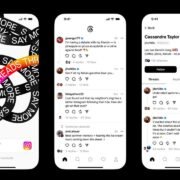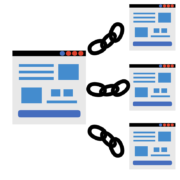In the vast world of search engine optimization (SEO), understanding the different types of links is crucial for effective link building and optimizing your website’s visibility on search engine result pages (SERPs). Nofollow, sponsored, and user-generated content (UGC) links hold particular significance among the various types of links. This article aims to provide you with a comprehensive understanding of these link types and their importance in the realm of SEO.
Table of Contents
- Introduction
- Nofollow Links
- Sponsored Links
- UGC Links
- The Impact of Nofollow, Sponsored, and UGC Links on SEO
- Best Practices for Utilizing Nofollow, Sponsored, and UGC Links
- Conclusion
Introduction
Links serve as the backbone of the internet, connecting web pages and facilitating the flow of information. Search engines analyze these links to assess the relevance, credibility, and authority of websites. To help webmasters communicate the nature of their links to search engine crawlers, specific attributes such as nofollow, sponsored, and UGC were introduced.
Nofollow Links
Nofollow links are tags that can be added to hyperlinks, instructing search engines not to pass any authority or PageRank to the linked page. Initially introduced by Google in 2005 to combat spam and prevent search engine manipulation, nofollow links are commonly used when linking to untrusted websites, paid advertisements, or user-generated content that may not meet editorial standards. By using the nofollow attribute, webmasters can ensure that specific links don’t influence search engine rankings.
Create a free nofollow link Today!
Sponsored Links
Sponsored links, as the name suggests, are links that have been paid for or sponsored by a business or advertiser. These links are often utilized in online advertising campaigns, affiliate marketing, or sponsored content. It is crucial to mark sponsored links appropriately to maintain transparency with users and search engines. By using the sponsored attribute, webmasters can signal that a particular link is a paid placement, allowing search engines to treat it accordingly.
Create a free Sponsored link Today!
UGC Links
UGC links refer to links embedded within user-generated content, such as comments, forum posts, or guest blog contributions. User-generated content can be valuable for websites, as it encourages engagement and community building. However, due to its varied quality and authenticity, search engines introduced the UGC attribute. The UGC attribute helps search engines differentiate between primary website content and user-generated content, providing a clearer understanding of the overall link landscape.
The Impact of Nofollow, Sponsored, and UGC Links on SEO
Understanding the impact of these link attributes on SEO is vital for effective link building strategies. While nofollow links do not directly contribute to a website’s authority, they can still generate valuable traffic and provide exposure. Sponsored links, when appropriately used, can enhance brand visibility and attract targeted traffic. UGC links, on the other hand, add authenticity and engagement to a website, but it is crucial to moderate and monitor user-generated content to ensure quality and relevance.
Also read: An SEO Guide to Nofollow, UGC, and Sponsored Links
Best Practices for Utilizing Nofollow, Sponsored, and UGC Links
To maximize the benefits of nofollow, sponsored, and UGC links, it is important to follow these best practices:
- Strategic Implementation: Determine the appropriate link attributes based on their purpose and relevance to your website.
- Relevance and Context: Ensure that the linked content is relevant to the page it is linked from, providing value to users.
- Transparency: Clearly label sponsored links to maintain transparency with users and search engines.
- User Experience: Avoid excessive use of nofollow, sponsored, or UGC links that may hinder navigation or dilute the content, prioritizing a positive user experience.
- Regular Monitoring: Continuously review and update link attributes to align with changes in your website’s content or partnerships.
Conclusion
In the realm of SEO, nofollow, sponsored, and UGC links play distinct roles in optimizing website visibility and authority. By understanding their purpose and impact, webmasters can make informed decisions when implementing these link attributes. Strategic use of nofollow, sponsored, and UGC links, along with adherence to best practices, can contribute to improved search engine rankings, enhanced user experience, and overall website success.
-

1 Shift from SEO to UIO: Harnessing the Potential of User Intent Optimization
-

2 Is threads app safe?
-

3 Tips to Grow on the Threads App
-

4 Nofollow, Sponsored, and UGC Links Guide
-

5 Maximizing SEO Impact: A Guide to Qualifying and Optimizing Outbound Links
-

6 An SEO Guide to Nofollow, UGC, and Sponsored Links
-

7 Dofollow Backlinks vs. Nofollow Backlinks: Understanding the Difference
-

8 From Zero to Hero: How Submitting a Guest Post Can Boost Your Online Presence


